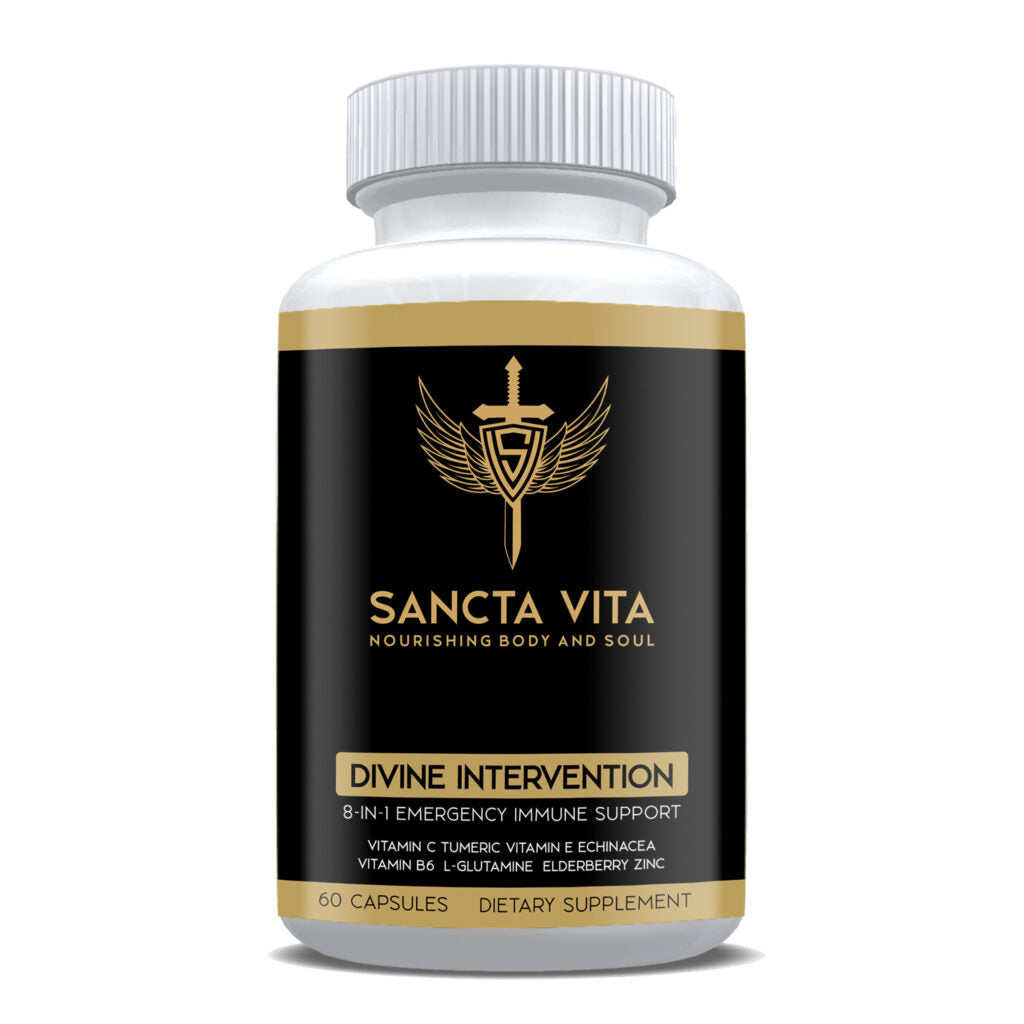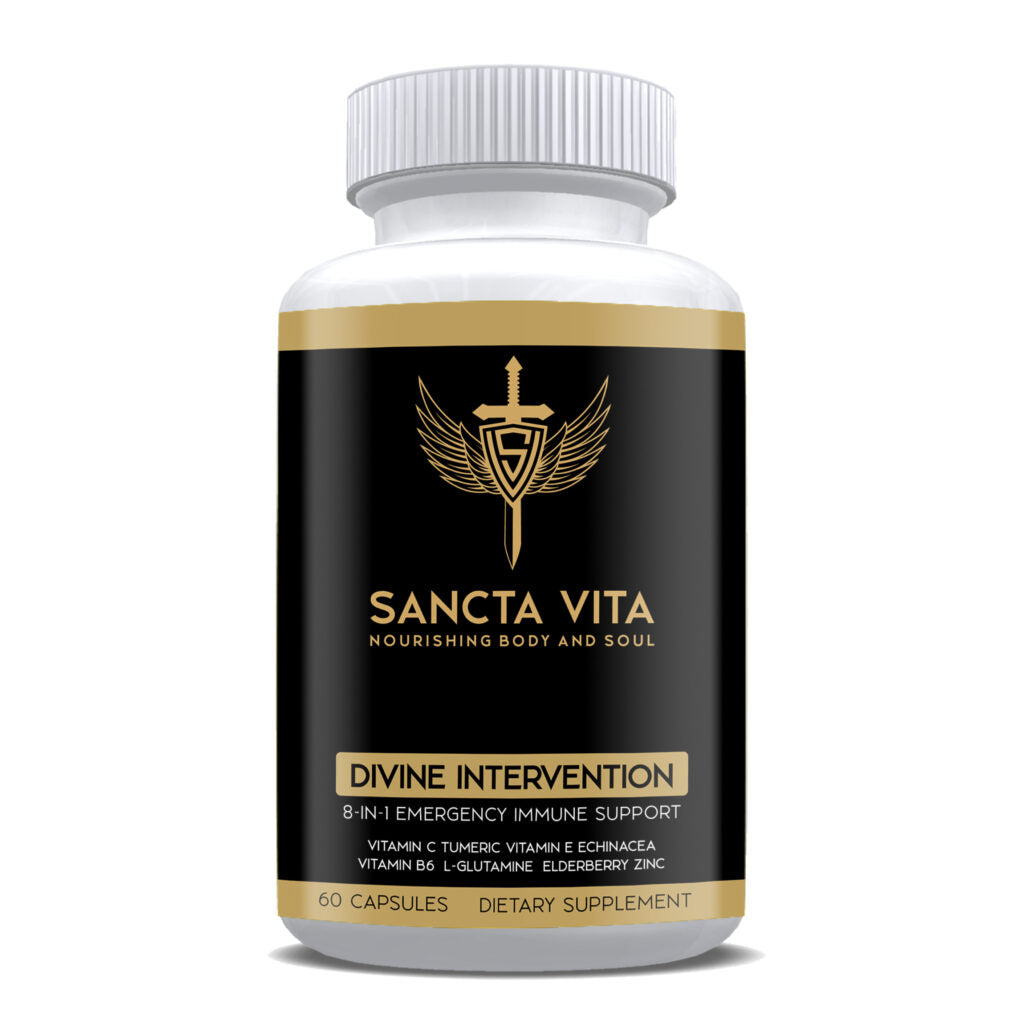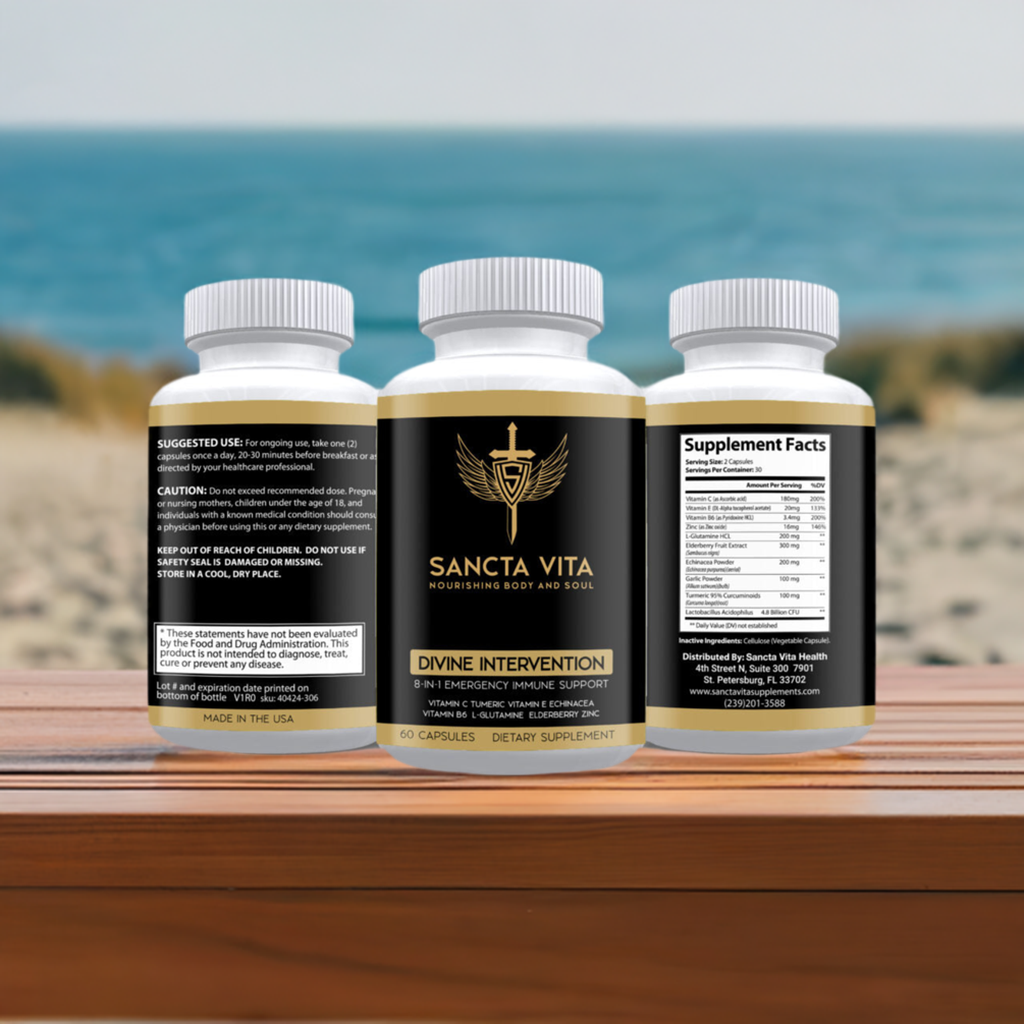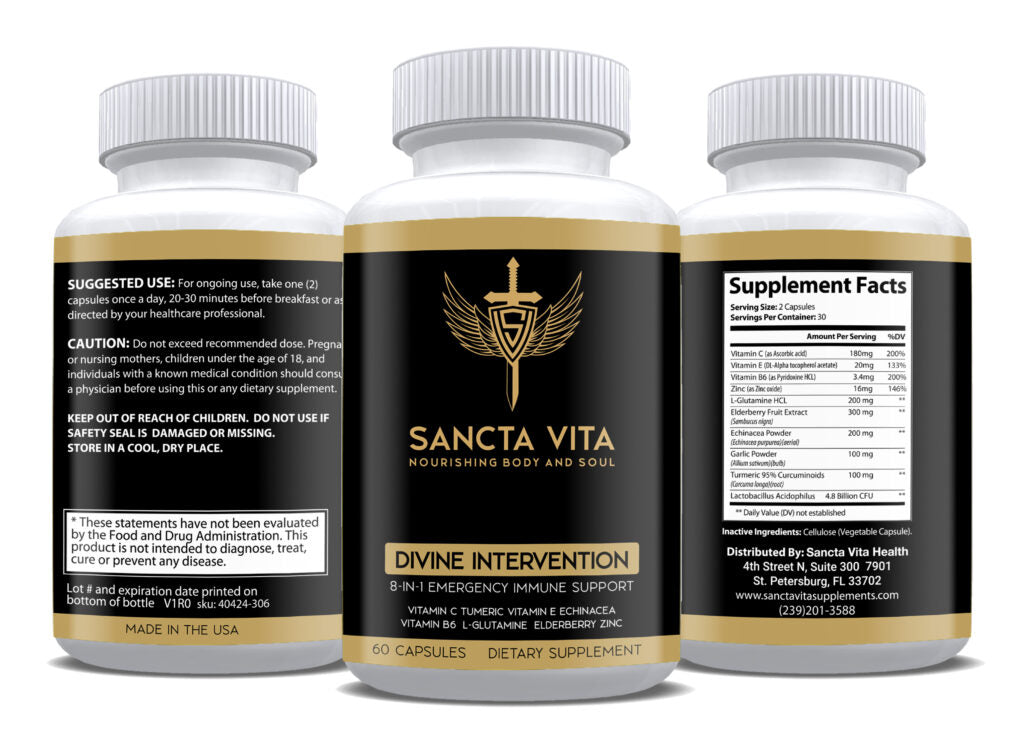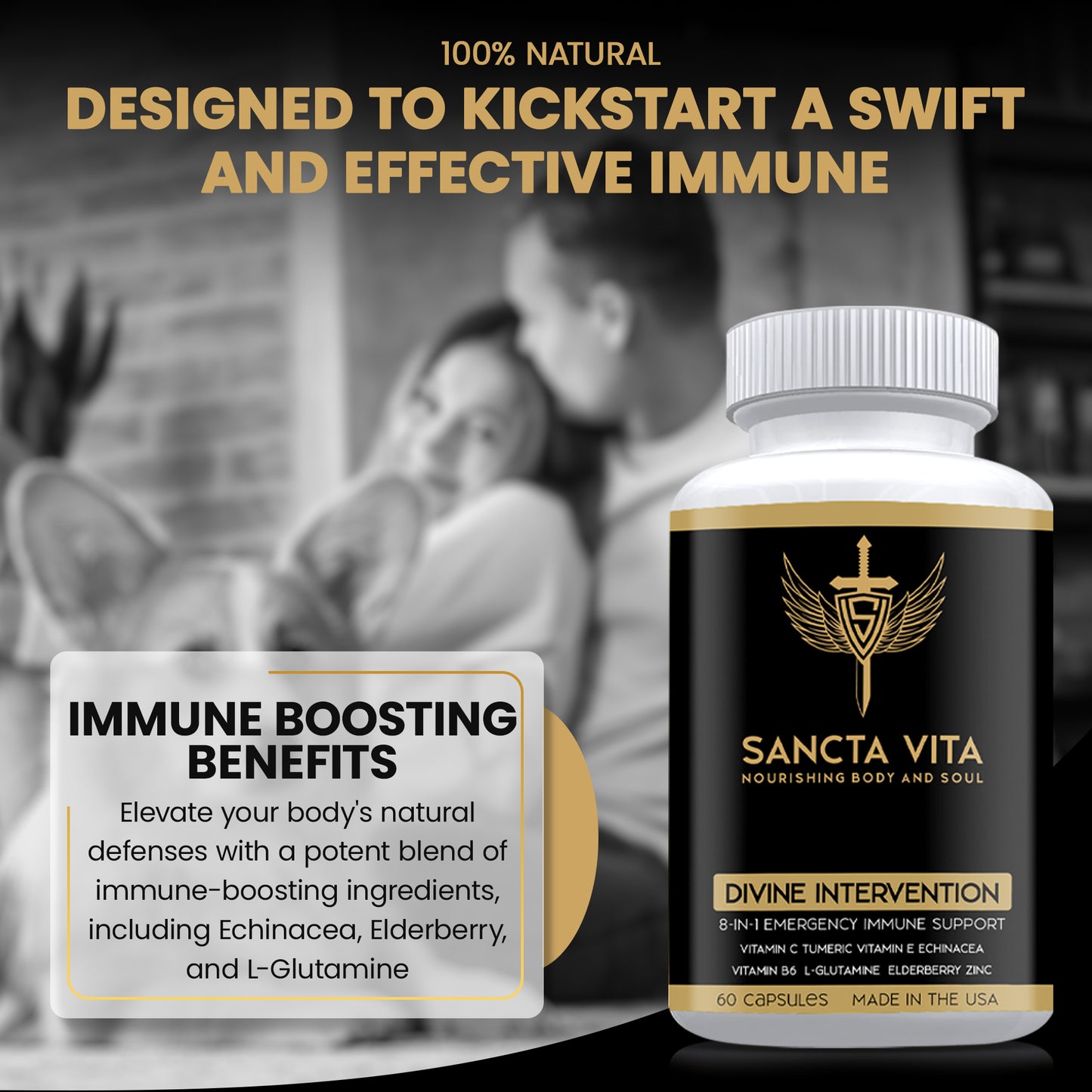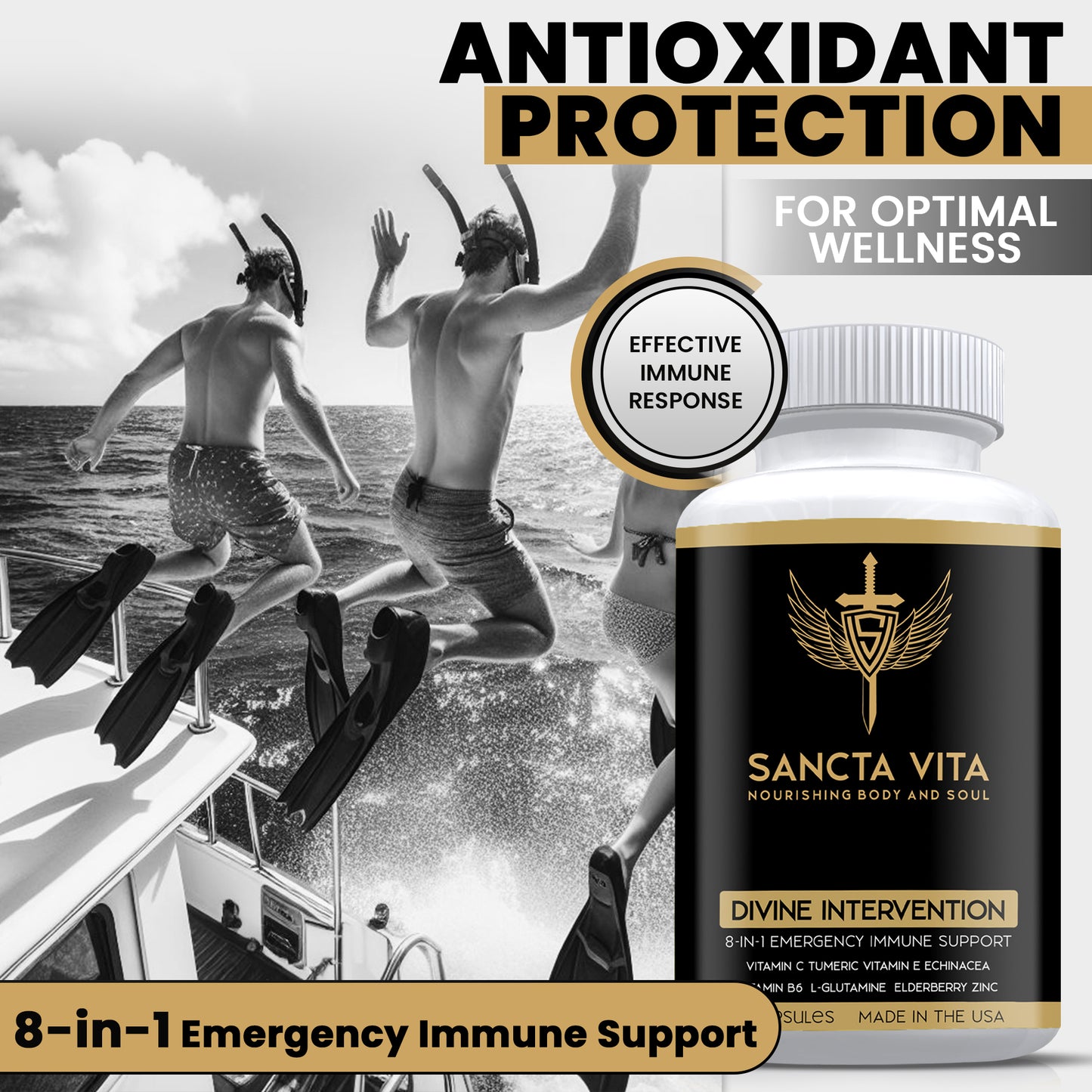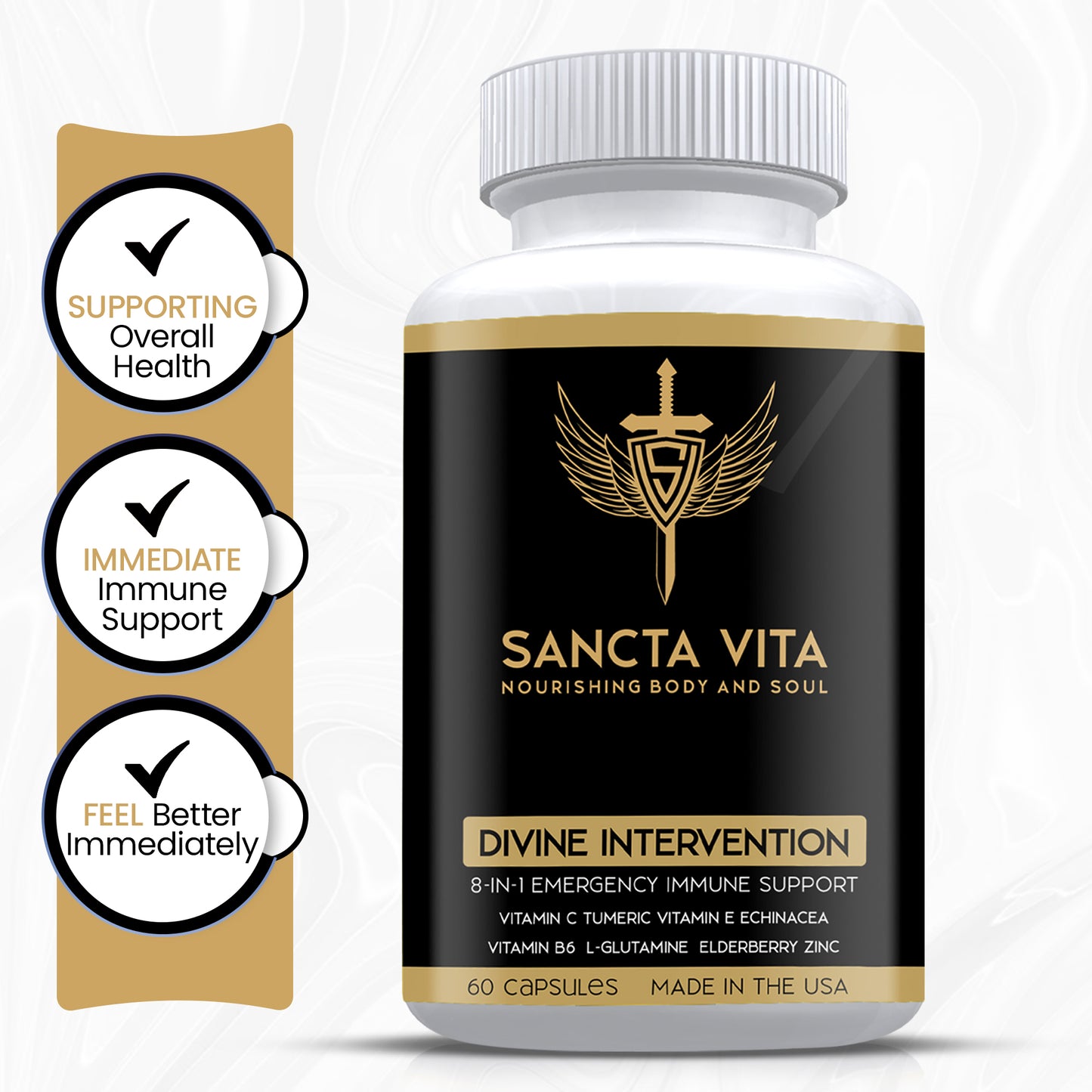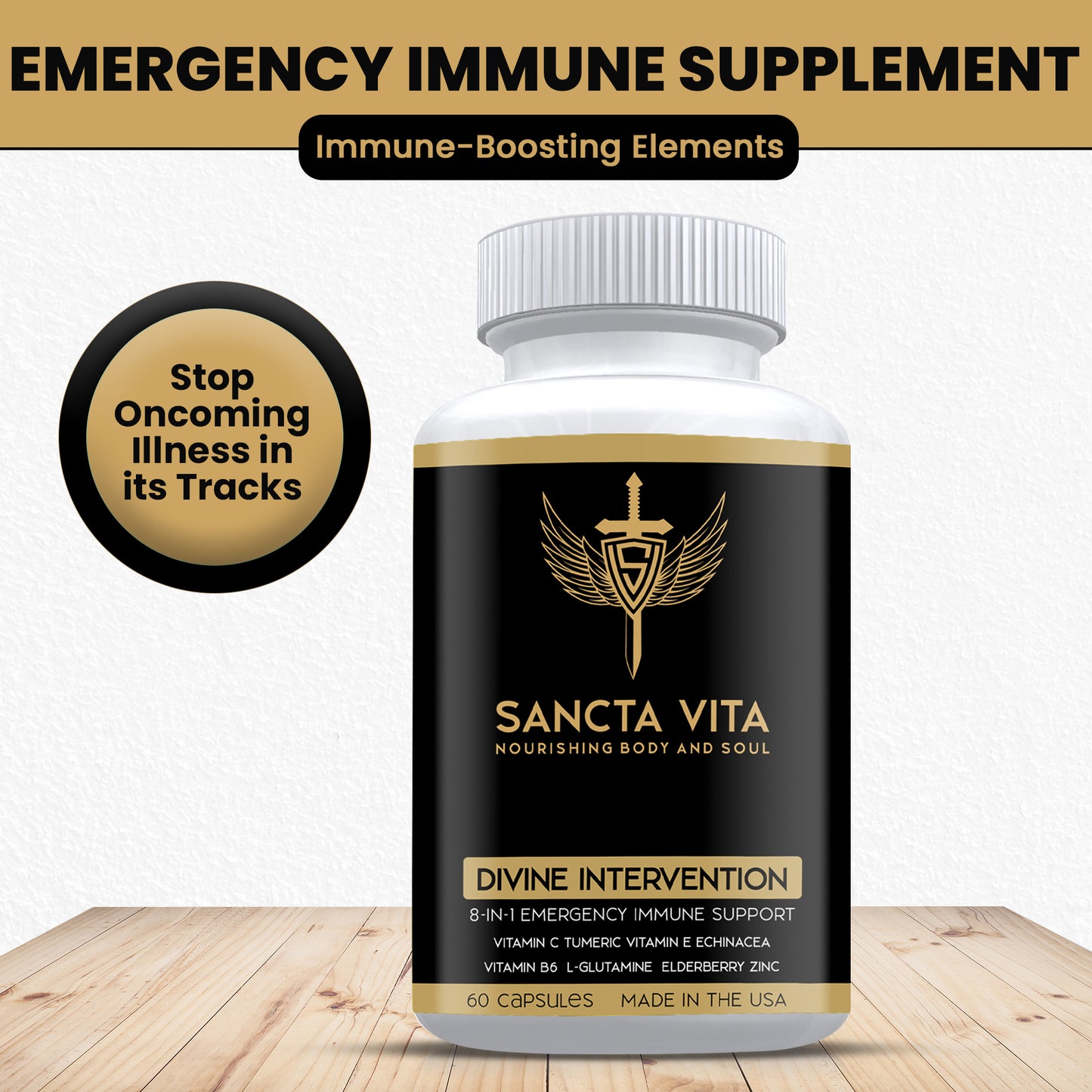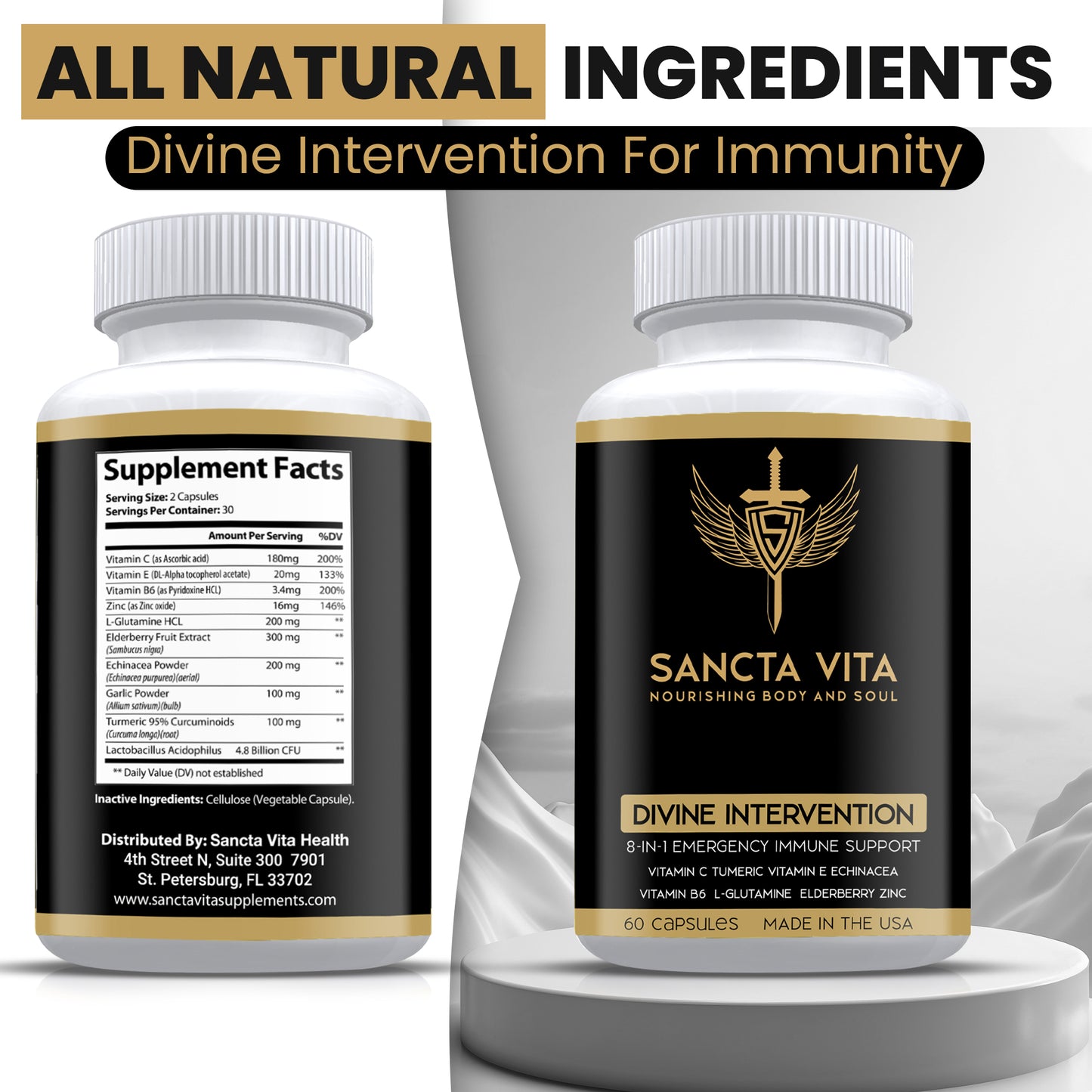
Top 5 Best Immune Support Vitamins for Better Health
Share
The quest for the best immune support vitamins has gained newfound importance in our post-pandemic world. As we navigate health challenges, a robust immune system serves as our frontline defense, with key vitamins and minerals playing crucial roles in fortifying our body's natural protective mechanisms.
Key Takeaways:
- Vitamin C, D, and Zinc are among the top immune-boosting nutrients
- Nearly half of adults are deficient in Vitamin D, compromising immune defense
- Elderberry and Turmeric offer potent natural immune support
- A balanced diet combined with supplements can optimize immune health
- Quality certifications are crucial when choosing immune support products
The Power of Immune Support Vitamins
In today's health-conscious landscape, the importance of a strong immune system can't be overstated. Immune support vitamins play a pivotal role in enhancing our body's defense mechanisms. Key players in this arena include Vitamin C, Vitamin D, Zinc, Elderberry, and Turmeric. Each of these nutrients contributes uniquely to our immune function, forming a comprehensive defense strategy against various health threats.
Alarmingly, studies show that 48% of adults are deficient in Vitamin D, a crucial component in immune defense. This deficiency can significantly weaken our body's ability to fend off infections and illnesses. Similarly, Zinc's role in RNA synthesis and cellular immune response underscores its importance in maintaining optimal health. Understanding these nutrients and their functions is the first step in fortifying our immune system.

Top 5 Immune-Boosting Powerhouses
Let's dive into the five best immune support vitamins that can significantly enhance your body's defense mechanisms:
1. Vitamin C: The Ultimate Antioxidant
Vitamin C stands out as a powerful immune booster. It stimulates the production of white blood cells, our body's primary defense against pathogens. Found abundantly in citrus fruits, bell peppers, and strawberries, Vitamin C offers more than just immune support. It acts as a potent antioxidant, protecting our cells from inflammation-causing toxins. Interestingly, a daily intake of 500 mg can shorten the duration of colds by 8%, according to studies.
2. Vitamin D: Adaptive Immunity Regulator
Often overlooked, Vitamin D is crucial for supporting adaptive immunity and reducing the risk of autoimmune diseases. While sunlight remains the best natural source, many rely on fortified foods and supplements to meet their needs. Alarmingly, 70% of people in industrialized nations show low Vitamin D levels. This deficiency can increase the severity of respiratory infections, making supplementation vital for many.
3. Zinc: Cellular Function Protector
Zinc plays a critical role in T-cell production and flu prevention, earning its title as the "gatekeeper" of the immune system. Rich sources include oysters, beef, seafood, wheat germ, beans, nuts, and tofu. However, it's crucial to avoid excessive intake; doses over 40 mg/day without supervision can lead to adverse effects. Quality immune support supplements often include optimal zinc doses for balanced intake.
4. Elderberry: Traditional Immunity Aid
Elderberry has gained popularity as a natural immune booster, known for reducing the duration of flu symptoms. Available in various forms like syrups, teas, and gummies, elderberry has been used historically to ward off respiratory infections. Its reputation as "nature's cold remedy" is backed by both traditional use and modern research.
5. Turmeric: Anti-Inflammatory Agent for Gut Health
Turmeric, particularly its active compound curcumin, offers powerful anti-inflammatory properties. Interestingly, curcumin absorption increases by 2,000% when paired with black pepper. Turmeric's benefits extend to gut health, which is increasingly recognized as crucial for overall immune function. By incorporating turmeric into your diet or supplement regimen, you're supporting both your immune system and digestive health.
Boosting Immunity Through Diet and Lifestyle
While supplements play a crucial role, a balanced diet rich in immune-boosting foods forms the foundation of a strong immune system. Here's a list of some of the best foods for immunity:
- Fruits: Blackberries, oranges, elderberry, citrus fruits, berries, melons
- Vegetables: Tomatoes, bell peppers, broccoli
- Herbs and spices: Ginger, turmeric, peppermint
- Beverages: Matcha green tea, cod liver oil
Incorporating these foods into your daily routine can significantly enhance your immune function. Here's an example of an immune-boosting daily routine:
- Breakfast: Spinach omelet (rich in Vitamin A) with peppermint tea
- Mid-morning snack: Greek yogurt and blackberries (probiotics + antioxidants)
- Noon: Multi-vitamin supplement with zinc and Vitamin D
When selecting supplements, opt for non-GMO formulations for better absorption. Look for certifications like USP Verified or ConsumerLab approval to ensure you're getting high-quality products. These certifications guarantee that the supplements contain the ingredients listed on the label and are free from harmful contaminants.
Frequently Asked Questions
Q1: What are the best immune support vitamins?
A: Clinical studies support Vitamin C, D, Zinc, Elderberry, and Turmeric as some of the most effective immune-enhancing nutrients. These vitamins and compounds have shown significant benefits in boosting immune response and reducing the duration and severity of common illnesses.
Q2: Are immunity vitamins safe for children?
A: While many immune support vitamins are safe for children, it's crucial to consult a pediatrician before starting any supplement regimen. Vitamin D and Zinc are generally recommended for children, but dosages should be carefully tailored to their age and specific needs.
Q3: Can I get all essential vitamins from my diet?
A: A balanced diet can provide most essential nutrients for immune health. However, certain circumstances like illness, restricted diets, or specific deficiencies may necessitate supplementation. Foods rich in immune-boosting vitamins include citrus fruits, leafy greens, nuts, and lean proteins.
Q4: How long does it take for these vitamins to boost immunity?
A: The timeline for seeing effects varies. Some nutrients, like Elderberry, may show effects within days when fighting an active infection. Others, like Vitamin D, work gradually to improve overall immune function over weeks or months. Consistent intake is key for long-term immune health benefits.
Q5: Should I take immunity vitamins daily?
A: Daily intake of immune support vitamins can be beneficial, especially for those with known deficiencies or during high-stress periods. However, for most healthy individuals, focusing on a nutrient-rich diet and supplementing only as needed is typically sufficient. Always aim to get nutrients from whole foods when possible.
References
1. CVS Pharmacy. Best Immune Booster | CVS Pharmacy
2. Portland SEO Growth. Keywords for Vitamins and Supplements - Portland SEO Growth
3. Cleveland Clinic. 5 Vitamins To Boost Your Immune System
4. Press Release Zen. Press Release Templates for New Vitamins & Supplements ...
5. Mayo Clinic Health System. Immune-boosting nutrients fight flu - Mayo Clinic Health System
Sources:

